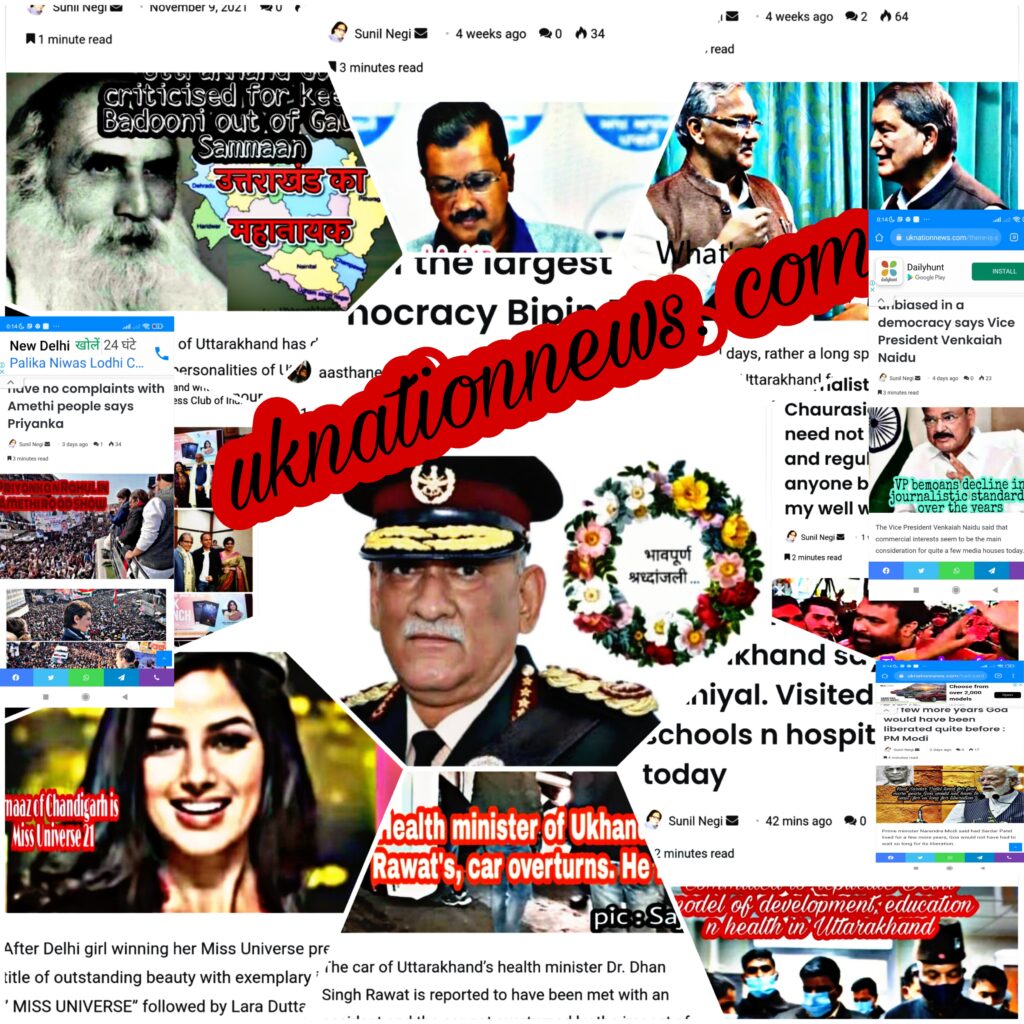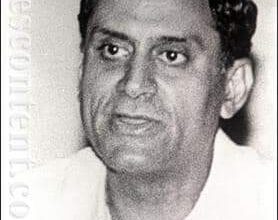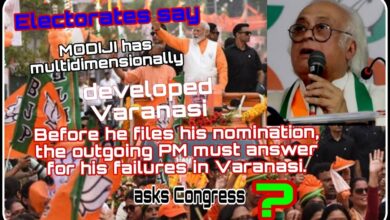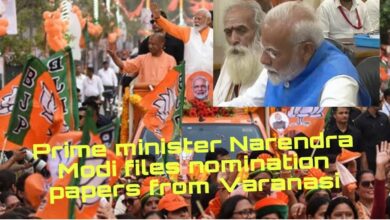Restricting the entry of journalists in Parliament amount to blatant transgression of constitutional rights says PCI president Umakant Lakhera

With a view to commemorate 75th year of Independence and 70th year of Constitutional Democracy, a Seminar was organised by Press Club of India at its premises today. The Seminar was attended by noted member of parliament from Lok Sabha, Shri N.K. Prem Chandran (RSP), former Secretary General Lok Sabha Shri P.D.T Achary and eminent journalists both from print and electronic media.
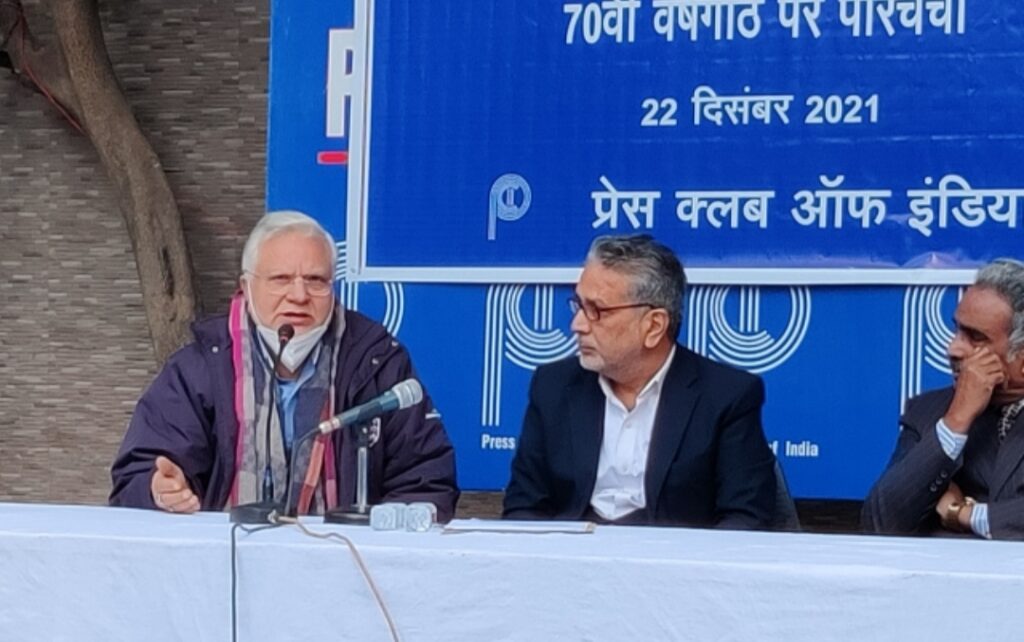
Editor Gfiles Anil Tyagi addressing the seminar
While presiding over the Seminar, President, Press Club of India Shri Umakant Lakhera said that for more than three decades, I have been covering both Houses of parliament. Today on basis of my long experience of covering parliament, I simply question the govt as to what has led it to impose restrictions on the entry of media persons into the parliament. Agreeably, under the clause of Privilege of Press mentioned in the parliamentary procedure, parliament has bestowed upon us the privilege to enter, report live debate of both Houses and interaction with MPs and library facilities.
Now the question is: did anyone among us covering parliament commit breach of press privilege resulting in govt overtly taking step of restricting our entry?
Our answer is no. Then this is blatant transgression on Constitutional rights as given to the media persons to disseminate public opinions under Article 19(1)(a).
When we discuss about parliamentary democracy, we have democratic societies as they are prevalent all over the world barring few countries having military and dictatorial system. In this system, role of media is significant in more ways than one. Media’s absence from parliamentary debate within the House could block the channels of fact checking and verification of facts. Unless media persons are physically present in the parliament, what have been discussed orally by the ministers couldn’t reach to the people at large.
Secondly, MPs are dependent on media to air their views after the end of debate in parliament. Also, by restricting media’s entry, govt. is erecting wall against freedom and smooth flow of information and facts percolating from parliament. As a consequence, journalists are likely to lose understanding of goings on in parliament; and people will be bereft of vitally important information relating to policies framed by govt.
Delving deep into the indispensability of media’s presence within the precincts of parliament, former Secretary General, Lok Sabha Shri P. D.T. Achary said that the importance of media’s presence could be gauged by the fact that in year 1929, Shri Vithalbhai Patel set up the First Press Advisory Committee to initiate media’s participation and due coverage of parliamentary proceedings.
In a matter-of-factly manner, member of parliament (Lok Sabha) Shri N.K. Premchandran said that he had raised this issue of restrictions of media’s entry in various forums in parliament. He further averred that media’s absence from parliament will put a stop on the flow of information— shaped up by live debates—within the country. He opined that patterns are depressing and restrictions on media’s entry are covertly complete denial of entry into parliament.
Due to his preoccupation, Shri Mallikaarjun Kharge, leader of opposition in the Rajya Sabha could not attend the seminar. But in a epoch making message conveyed to president, PCI, Shri Mallikaarjun Kharge said that in India, media and democracy are facing serious challenges; there are not ample opportunities available for opposition in the parliament to ask questions relating to people’s welfare. He further said that those journalists who report objectively are facing music; and there are restrictions for entry of senior journalists into parliament.
Former president of Press Club of India Anant Bagayatkar alleged that this is a well calculated move by the present government to keep the journalists away from covering the news and stories of Parliament. Ironically, Mr. Bagayatkar recently resigned from the post of Secretary, Media Advisory committee of upper house as a mark of protest against restricting media in Parliament.
President of the press association CK Nayak raised the issue of delaying the renewal press accreditation facilities by the press information bureau (PIB) and raised the apprehension on behalf of the media fraternities.
He alleged that such kind of tactile is clear objective to restrict the media persons from doing their duties.
A resolution was also passed on this ocassion with unanimity which said while commemorating 70th year of Constitutional Democracy, we take a liberty to pass a resolution which is in sync with the Constitution of India. The resolution added : Invariably, media draws its strength from Article 19(1)(a) of the Constitution and this gives media freedom to disseminate public opinions emanating from the parliament and other two pillars of democracy, executive and judiciary. Also on reciprocal basis, role of media is to defend Constitution.
Having said this, we would like to bring home the fact that unwarranted restrictions currently imposed on media persons for entry into parliament are not in consonance with letter and spirit of Article 19(1)(a) of the Constitution. We appeal to the government to restore constitutional sanctity and to remove the restrictions imposed on the media entry into parliament.

